
Outcomes were comparable in the transplant-ineligible population, with KRd and VRd producing identical progression or death rates of 30%.

Your AI-Trained Oncology Knowledge Connection!


Outcomes were comparable in the transplant-ineligible population, with KRd and VRd producing identical progression or death rates of 30%.

An ORR of 100% was noted in the 160 mg odronextamab/CHOP cohort in untreated DLBCL.
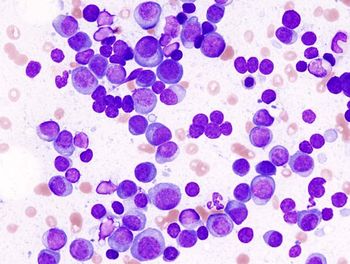
The 2.5 year progression-free survival rate was 80.5% with cilta-cel for this population, suggesting a potential cure fraction.

Even among Black patients with sufficient social support for clinical trial enrollment, there is inequity related to accessing allogenic transplantation.

Giving cilta-cel in earlier lines of therapy leverages stronger baseline immune health and a more favorable TME to deliver enhanced clinical outcomes.

An ORR of 91.4% was observed with zanuburtinib plus R-CHOP in patients with DLBCL.

Results from a phase 2 trial showed an ORR of 62.5% in patients receiving lisaftoclax monotherapy for CLL/SLL.

A total of 30.0% and 31.5% of families with children undergoing chemotherapy for ALL experienced household material hardship or catastrophic income loss.

Elevated LDH levels were associated with worse PFS and OS outcomes in patients with relapsed/refractory multiple myeloma treated with elranatamab.

Among patients with an HLA-locus match level of less than 7, the rates of relapse and GVHD were similar to those with an HLA match level of 7.

Fixed-duration venetoclax regimens with obinutuzumab or ibrutinib showed noninferior PFS vs continuous single-agent ibrutinib in the phase 3 CLL17 trial.

Future work may expand analyses of measurable residual disease as a surrogate end point in AML to the use of modern, non-intensive treatment backbones.

The 2-year EFS end point was met in the cohort of patients given non-TBI conditioning and allogeneic HCT among those with B-ALL who are pre-HCT and NGS MRD-negative.

Teclistamab shows promising real-world effectiveness for relapsed/refractory multiple myeloma, with high response rates and manageable safety profiles.

Patients with lung cancer who achieve a complete response with neoadjuvant therapy may not experience additional benefit with adjuvant immunotherapy.
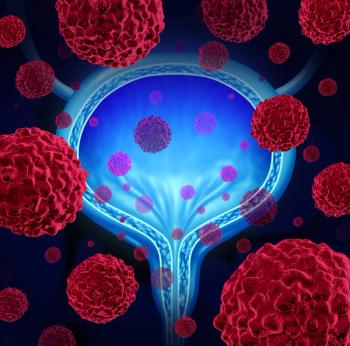
The intravesical MVR-T3911 treatment did not lead to any dose-limiting toxicities in patients with high-risk, BCG-unresponsive non-muscle invasive bladder cancer.

Over 80% of a small cohort of patients with mantle cell lymphoma achieved a complete response to ibrutinib plus venetoclax.
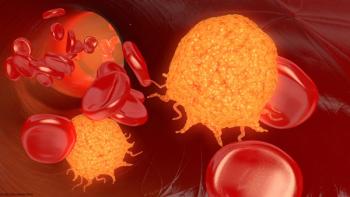
Olverembatinib plus low-intensity chemotherapy achieved an MRD-negativity rate in about 65% of patients with newly diagnosed Ph+ ALL.

The safety profile of nadunolimab in patients with triple-negative breast cancer was consistent with its known profile, and no significant signals emerged.

Numerous trials have displayed the evolution of EGFR inhibition alone or with chemotherapy/radiation in the EGFR-mutated lung cancer space.

Oncology care requires psychosocial support, nutrition, and survivorship, which can result in improved patient outcomes and quality of life.

Treatment with liso-cel led to complete responses in 55.8% of patients with marginal zone lymphoma who received at least 2 prior lines of systemic therapy.

Updated results at ASH 2025 may support new alternatives to continuous therapy and standard intensive chemotherapy across different leukemia types.

From phase 3 trial updates to results on trispecific antibodies, ASH 2025 may feature a variety of practice-shifting presentations across multiple myeloma.

Experts highlight considerations for treating patients with oligometastatic kidney cancer, such as differentiating between de novo and recurrent disease.

Developers have outlined plans to initiate a randomized phase 2 trial evaluating silevertinib in patients with newly diagnosed glioblastoma.
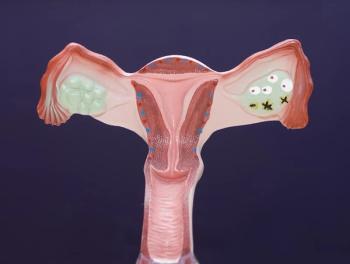

Although high grade adverse effects are infrequent among patients undergoing treatment for SCLC, CRS and ICANS may occur in higher frequencies.

Treatment with IGV-001 demonstrated a 45% increase in overall survival compared with standard of care in patients with newly diagnosed glioblastoma.
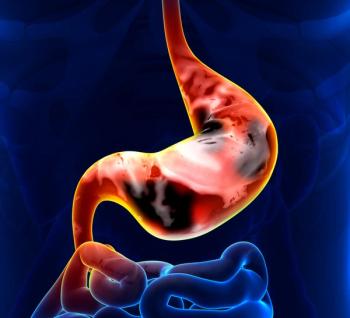
Qualified surgeons may offer laparoscopic distal gastrectomy as an alternative to open distal gastrectomy among those with clinical T4a gastric cancer.